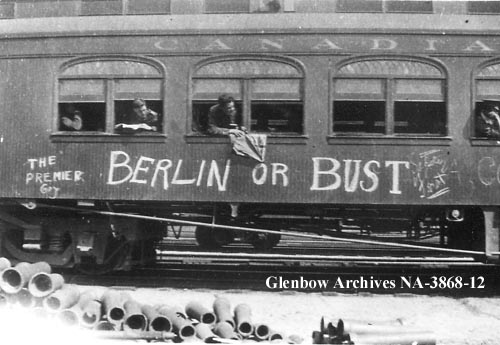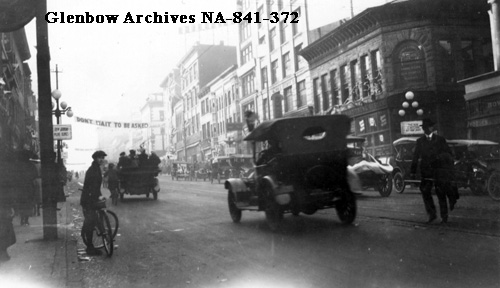Nov. 11, 2018 marks 100 years since the end of the First World War.

During the Great War, Calgary soldiers left their families behind and bravely went into battle — thousands were killed and many more were wounded.
Among them was Pte. John George Pattison.
On the anniversary of the armistice that ended the war, his grandson Robert Pattison remembered his grandfather’s selfless actions and courage that earned him the Victoria Cross, the highest Canadian military honour.
“He was a nice chap,” Robert said. “He took care of his family fairly well.”
The 82-year-old never knew his grandfather and only learned about him through testimony, photographs and history books.
“I’ve learned a lot about him… He was really concerned about his son Henry,” Robert said.
The story goes that John, in his 40s at the time, followed his son Henry into the military in 1916. The 16-year-old lied about his age to enlist.
At Vimy Ridge on April 10, 1917, John headed out alone to attack a German stronghold, jumping from shell-hole to shell-hole, under cover and within 30 yards of the enemy. He hurled bombs, wounding several men. He then rushed the remaining five enemy solders and bayoneted the surviving men.
John was the only Calgarian to be awarded the Victoria Cross during the First World War. He died in battle in June 1917, without knowing he received the honour.
His grandson said he is extremely proud of what John did, leaving behind a legacy and stories for future generations.
“I don’t know what I would’ve done if he would’ve survived the war, that would’ve been very nice, especially for me,” Robert said. “There were many other soldiers who did good things too.”
“I’m certainly proud of what my grandfather did.”
Calgary during the First World War
Calgary became a major military centre during the First World War — which meant its two main industries at the time, agriculture and construction, were booming.
Life in Calgary was difficult and would provide many challenges for families left behind, according to Thomas Leppard, historian and Field of Crosses executive director.
“There was this drum and bugle sense that this was going to be a patriotic struggle,” he said. “Calgary rallied and volunteered in droves to fight.”
Camp Sarcee, now known as Battalion Park, trained more than 40,000 soldiers. According to Leppard, as the war dragged on, morale dropped. Estimates vary but Leppard guesses about 800 Calgary soldiers died in the war, and thousands more were wounded.
“This was a world war that became a national struggle,” he said. “The war dominated everything about the city in those four years. There was no family that escaped loss during the war.”
WATCH: A century ago the Great War came to an end. Canadian soldiers played a crucial role in the bloody stalemate when they punched a hole in the German lines in August 1918. Suddenly the war shifted from the death-trap of trench warfare, to open warfare. Mercedes Stephenson explains how Canada’s “hundred days” campaign helped turn the tide.
Parades were held in Calgary when soldiers returned from battle. However, despite the exuberance that the war was over, societal tensions grew from the difficulties of finding work post-war.
Farmers also resented the government over conscription, as many had been forced to send their sons overseas, which reduced help around the farm. Falling crop prices did little to help morale in the province, too.
In an effort to boost resolve, leaders of the community re-ignited the notion of a city-wide fair, which would eventually become the Calgary Stampede.
Leppard’s daughter, Christine Leppard, is a Calgary Stampede historian. She said the fair was organized in 1912 but was put on hiatus until after the First World War.
Four wealthy Alberta cattlemen banded together to reintroduce a community event to celebrate the victory.
“Patrick Burns, A. E. Cross, A.J. McLean and George Lane — the Big 4 of the Calgary Stampede in 1912 — got together and said, ‘Let’s have another spectacular, uniting, community-building and celebration of victory,’ ” she said.
The Calgary Stampede would be held the following year in August 1919.


















Comments